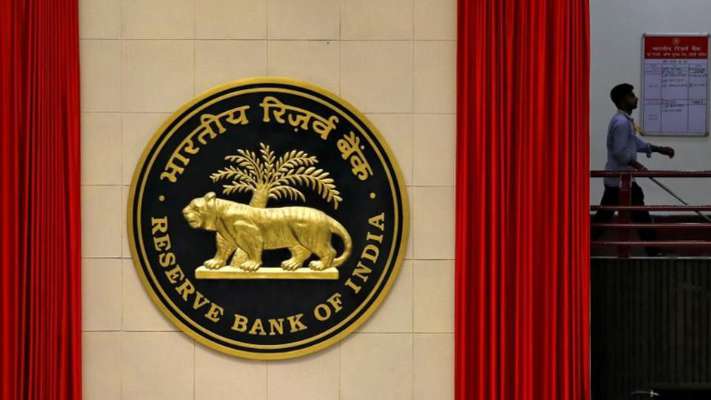 12-11-2019
12-11-2019
Centre considers raising insurance for deposits, more RBI scrutiny for banks

 Insurance Alertss
Insurance AlertssCentre considers raising insurance for deposits, more RBI scrutiny for banks
The government is considering increasing the insurance on bank deposits to more than the Rs 1 lakh at present, with greater protection for senior citizens, and may bring all financial institutions under the Reserve Bank of India's scrutiny as part of measures to improve safeguards for depositors.
The plans come in the wake of the crisis at Mumbai-headquartered Punjab and Maharashtra Cooperative Bank (PMC) where customers have not been able to withdraw more than Rs 50,000 since late September when the central bank found violations of banking rules and under-reporting of bad loans. At the start of the crisis, PMC was estimated to have at least Rs 11,000 crore in total deposits, with the main protection for depositors being the Rs 1 lakh guarantee by Deposit Insurance and Credit Guarantee Corporation (DICGC) in case the bank turned insolvent.
'A review of deposit insurance is overdue, which includes several aspects such as raising insurance cover from Rs 1 lakh to an appropriate level to reflect the current reality,' said an official in the administration, asking not to be named. The cover of Rs 1 lakh has been unchanged since 1993, when it was increased from Rs 30,000. The official quoted above said the changes also include reducing the premium burden, which may be done by revising the way it is calculated. At present, premium is calculated on the basis of total deposits in a bank.
'There is no rationale that banks pay premia on 'assessable deposits' [total amount], which is disproportionately higher than the actual amount of insured deposits. 'Since DICGC makes good only the insured amounts of deposits in case a bank fails, the premium should, therefore, be charged only on the insured deposits and not on assessable deposits,' this person added. According to RBI, the corporation provided actual insurance coverage to Rs 33,70,000 crore of deposits last year while the total assessable deposits were Rs 120,05,100 crore. DICGC insures all bank deposits, such as savings, fixed, current and recurring accounts.
The official said that since the Rs 1 lakh limit was last revised two-and-a-half decades ago, it is low for present needs and needs to be raised to at least by Rs 2 lakh per depositor. This will cover at least 75% of all depositors in the country, as compared to the approximately 50% now, this person added. Another part of the plan is to enhance safeguards for senior citizens and retired people, since a large proportion of such depositors depend on interest income, a second official aware of the plan said.
'In particular, over the years, the level of insured deposits as a percentage of assessable deposits has declined from a high of 75% in 1981-82 to 28% in 2017-18. Given this backdrop, we believe, there is a dire need to revisit the insurance coverage of the bank deposits. In particular, the current upper limit of ?1 lakh per depositor, we believe, has outlived its shelf life and there is a need to revisit it,' Dr Soumya Kanti Ghosh, group chief economic adviser, State Bank of India said in a research report.
The official quoted in the first instance said the need to review the rules was felt especially after the PMC crisis. At present, PMC depositors' money is safe as the bank has not been liquidated. Insurance clause is triggered only after the liquidation of a bank, the officials said, adding the government may also make necessary amendments to ensure all financial institutions, including cooperatives taking public deposits, fall under the full control of RBI. At present, cooperatives are largely government by the registrar of cooperatives.
The second official said the DICGC Act empowers the corporation to raise the insurance limit with the prior approval of the finance ministry and the limit was enhanced several times in the past. The review, this person said, may also consider having differential premium rates depending on the risk profile of deposits. At present, DICGC charges a flat premium of Rs 0.10 per deposit of Rs 100 from all banks. This rate was raised in April 2005 from Rs 0.08. According to DICGC, as on March 31, 2019, out of total 2,174 million accounts 2,000 million are insured accounts.
DICGC, RBI and the finance ministry did not respond to email queries related to the depositors' insurance. Experts, however, said the review of the matter is urgently required as bank account holders are worried about their hard-earned savings. Soumya Datta, general secretary, All India Bank Officers' Confederation (AIBOC) said, 'Certainly there is an immediate necessity to review the frame work. Deposit insurance should keep in mind the present value of rupee. Remove the concept of per depositor as the premium is paid on quantum of deposit and not per depositor. Special status needs to be provided to small savers, superannuation funds and rural population.'
Pointing to the PMC crisis, Atul Pandey, partner, Khaitan & Co, said that while revision of the existing rules for deposit insurance was needed, simply enhancing existing insurance limit per depositor will not be sufficient to protect the interest of depositors. He proposed a risk-based deposit. 'More importantly, the RBI's scrutiny over the books of banks and other financial institutions requires an urgent overhaul, and a move away from a supervisory role to an investigatory one,' he said. 'In addition to the raising of deposit insurance, there is a dire need of fixing structural and supervision issues in the banking system,' said Rachit Sharma, DGM, Taxmann.
According to L Viswanathan, partner, Cyril Amarchand Mangaldas, besides ensuring depositors' money, there is a need for further evolution of the regulatory function of regulated institutions. 'Governance of regulated institutions that access public funds must be neutral to the ownership and form of these institutions (public or private, company or co-operative). The credit functions, reporting and accountability mechanism needs to be strengthened,' he said.
Source: The Hindustan Times
